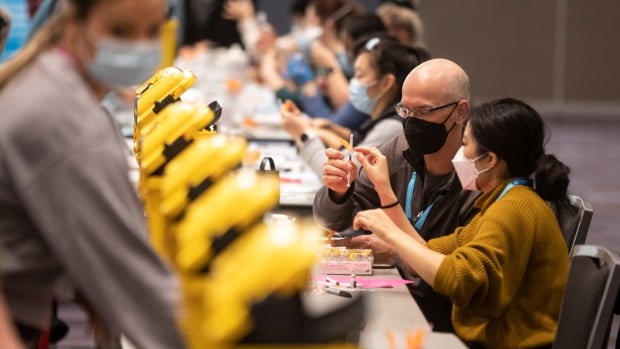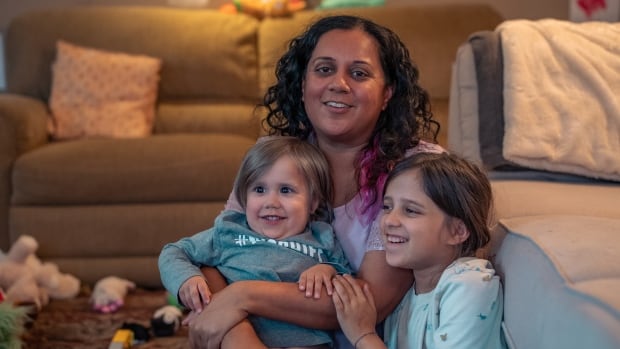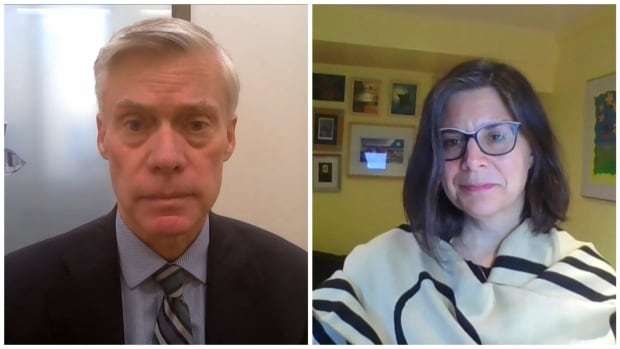Heading into her freshman year of university last year, Phatima Kabia was feeling done with men.
As a way to heal, she set herself boundaries around relationships: There would be no flings, no hookups, no awkward talking stages, no friendships with attractive men and no texting boys back after 9 p.m. — knowing “nothing good happens past 9 p.m.”
“I went through a really messy breakup in high school that honestly left me so tattered. And I just knew from that point … I wanted to take time off for myself,” said Kabia, 18, who lives in the San Francisco Bay Area.
“I feel like a lot of the times, as women, your value is really related to your relationship to a man … so I wanted to build my status up and get to know myself well enough, to the point where I’d be like, ‘OK, this is what I can’t accept and this is what I do not accept at all.”
Fed up with exhausting dating apps and messy hookup culture, some Gen Z women say they’re choosing not to have sex or date for a set period of time. Instead, they’re living “boysober” — a trending TikTok term which generally refers to a young woman who wants to focus her energy on self-care, healing or reflection around what she wants from dating and relationships.
The #celibacy hashtag has more than 20,000 posts on TikTok, with young women sharing their stories on the platform.
No dating, no sex
Last fall, Hope Woodard was in the thick of a few unhealthy relationships. She was still tangled up with an on-again, off-again ex and also interested in a man from London who wasn’t responding to her texts.
She was still thinking about the man who ghosted her while she was on a trip to Tennessee to care for her grandmother, who has dementia. As the women sat together, Woodard realized her grandmother kept sending texts to her late husband, who had died a decade earlier.
“It was like I was looking into a crystal ball at my future. I was like, ‘If I don’t sort of figure out how to be alone, then I will literally be an 82-year-old still getting left on read,'” said Woodard, 28, using a term that refers to when a person reads your text but never replies.
Widely seen as the mother of the term “boysober,” Woodard has since clarified the commitment can be for anyone abstaining from romantic relationships with people of any gender — not just heterosexual women taking a break from heterosexual men.
People can tweak the rules to find what works for them. Some abstain from both dating and sex; others continue to have sex so long as they don’t feel a romantic connection. It’s different than faith-based celibacy, which has been around for centuries in alignment with an external community — it’s an inward “rebalance” in service of oneself.
For Rachel Dawn, 24, the rules are no dating and no sex. Her boysober experience began three months ago as a way to take back power in her life after growing tired of the way men showed up for her, but she found it also strengthened bonds with friends and family.
“Ironically, it’s like those relationships have become healthier because it’s been like, ‘OK, let’s work through all the [childhood] trauma. Let’s work through all the things that are causing you to go on dates for validation or because you’re bored or because you feel wounded,'” said Dawn, an entrepreneur in Seattle.
“I think Gen Z really has the courage to break generational trauma, honestly, and look into the patterns…. But then also still wanting to connect with people in a way that feels good.”
Acutely focused on their health and well-being, Gen Z has been rewriting the rules around sex, love and dating. Data has shown younger people are having less sex in general. A U.S. survey of 2,000 adults revealed one in four Gen Z adults said they have yet to have partnered sex. Another study conducted between 2000 and 2018 found roughly 19 per cent of women aged 18 to 24 hadn’t had sex in the past year, compared to 12.6 per cent of women aged 25 to 34 who reported the same.
Several psychologists agreed they’ve seen young people in their practice choosing celibacy because they’re fed up with hookup culture and dating apps.
“People are burnt out. They’re burnt out from dating apps that they feel like they’re always applying for a job…. Lots of fatigue, lots of rejection or feeling overwhelmed,” said Kimberly Nelson, a registered psychologist in Calgary.
After years of swiping, have we reached the point of dating app burnout? Therapists and researchers say that might be the case.
“This generation, they’ve grown up in a world where the old systems don’t necessarily serve them and they don’t fit in there. They’re making up the rules and changing them and renegotiating them — and sometimes they’re opting out.”
They say it can be healthy to take time to reflect on relationship priorities, but cautioned against the practice long term, as it could mask more complex traumas or make future relationship-building feel difficult.
“Celibacy is much more effective when it’s intentional — when you set yourself with the intention, ‘Why am I doing this? What am I learning about myself in this new way? How am I intending to relate to people in a new way?'” said Carlen Costa, a clinical sexologist and psychotherapist based in London, Ont.
Columnists from CBC Radio3:54Can AI improve your love life?
On TikTok, Kabia’s story about her decision to be boysober has more than a million views. She’s since posted follow-up videos answering questions, saying she’s happy with her decision and admitting it’s helped her heal from old codependency patterns.
“I think I’ve always known I’ve had value as a person, but really taking the time to sit and be by myself, I’ve learned the ways I can show myself love — what I can pour into myself versus pouring into another person,” Kabia said.
“When you take that energy and that time and use it with yourself … that really just shows how much love you’re capable of giving and how much value that holds.”








